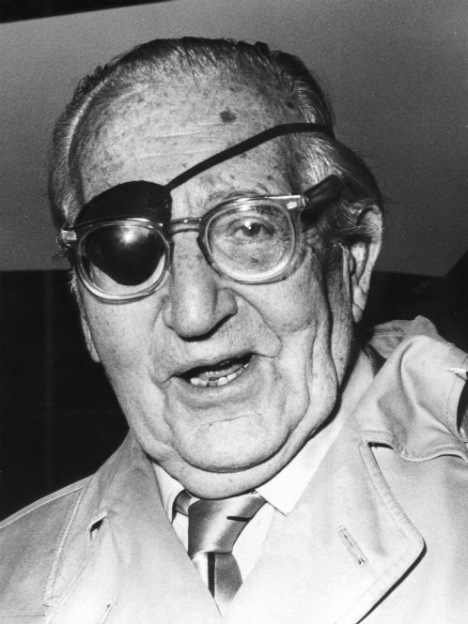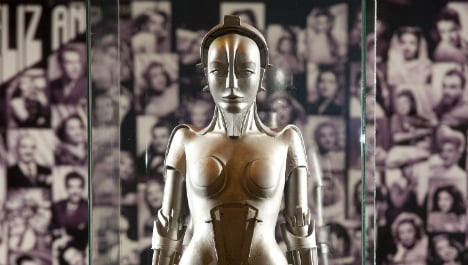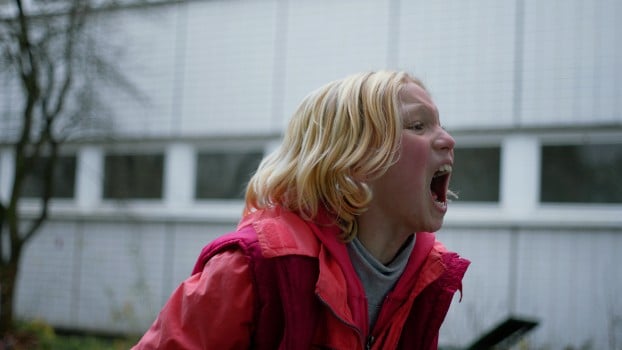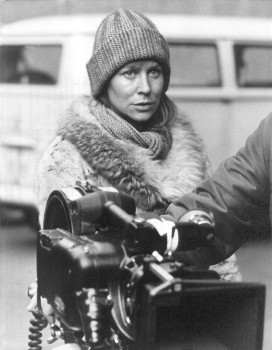
CINEMA
Metropolis: Grandfather of Sci-Fi Films
Fascinating everyone from Adolf Hitler to Whitney Houston, with themes of social injustice and a voluptuous robot-temptress, the German science-fiction movie Metropolis carved an extraordinary niche in film history after its release on January 10th, 1927.
Published: 8 January 2015 14:30 CET
Updated: 9 January 2015 09:40 CET
Updated: 9 January 2015 09:40 CET

The original "Man Machine" from Fritz Lang's classic Metropolis Photo: DPA
Written by Fritz Lang and his wife Thea von Harbou, the silent movie was inspired by an eclectic mix of elements and settings, from art deco motifs to New York's skyline and Tokyo's red-light district.
Made in Weimar Germany, Metropolis depicts a futuristic urban dystopia in 2026. It follows the quest of Freder, the wealthy son of the city's ruler, and Maria, a poor worker, to love on equal terms and bridge the gulf between the classes of their city.
The convoluted plot took the final cut to 153 minutes, which led to numerous edits over the decades, the loss of some scenes and their chance rediscovery in film archives many years later.
The movie was inspired by the novels of Mary Shelley, H.G. Wells and other writers and visionaries. But the critics made short work of it, despite its bold thematic and technical innovations – and army of more than 30,000 extras.
Thumbs up from the Nazis
The New York Times called it a “technical marvel with feet of clay”, while Wells slammed it for “foolishness, cliché, platitude, and muddlement about mechanical progress and progress in general”.
It also faulted Metropolis for its premise that automation created drudgery rather than alleviating it.
Lang later pronounced his own movie “silly and stupid”, partly because of its simple philosophy that the mediator between brain and hands has to be the heart.
He found himself liking it again when some of its predictions came true in his lifetime, such as space travel. He also warmed to the ‘heart theme’ in the 1970s when young people told him that they felt this quality really was missing in the hi-tech world.
But his rejection of his work may have also been due to its enthusiastic reception by Hitler and his inner circle – who applauded the film’s message of social justice.
Von Harbou became a committed member of the Nazi Party in 1933, and the couple divorced the following year.
Big budget boot camp
It took more than a year to shoot Metropolis, and the original budget of 1.5 million Reichsmarks soared to 5 million (around €170m today), making it the most expensive film ever made at the time.
Meanwhile, Lang was rigorous with his cast of mostly novice actors, insisting on numerous re-takes. It took two days to shoot just one scene where Freder collapses at Maria’s feet.
For a scene where the worker’s city is flooded, the female lead and 500 malnourished children from Berlin’s poorest districts had to film for two weeks in a pool of water that Lang kept at a low temperature.
In cinematic technique, Metropolis broke much new ground. Lang used visual effects like miniatures of the city, a camera on a swing, and the use of mirrors to create the illusion that actors were occupying miniature sets, a technique that was later used by Alfred Hitchcock.
Robot rising
But an unwitting star of the film was the Maschinenmensch (machine human). This robotic copy of Maria was sent to wreak revenge against Freder’s father and havoc in the workers’ city, starting at the sleezy Tokyo-style Yoshiwara bar.
The robot was created in real life by sculptor Walter Schulze-Mittendorff and consists of a whole-body plaster cast with a metallic-looking surface built around it.
A less uncomfortable interpretation was worn by Whitney Houston in her video for ‘Queen of the Night’ (1992), which also featured shots from the original Metropolis.
The film's score was composed by Gottfried Huppertz, who drew inspiration from Richard Wagner and Richard Strauss.
Subsequent soundtracks involved Adam Ant, Pat Benatar, Bonnie Tyler and Freddie Mercury.
The Queen vocalist also used scenes from the original movie in the video for the band’s 1984 hit Radio Ga Ga, while Madonna’s video for ‘Express Yourself’(1989) also pays homage to Metropolis and its director.
Posthumous movie landmark
In 2008, a damaged print of Lang’s original cut of the film was found in a museum in Argentina. The whole film was 95 percent restored and was shown on large screens in Berlin and Frankfurt in February 2010.
Lang, who died in California in 1976 aged 85, lived to see the start of space exploration and other technical leaps forward – but not the eventual critical acclaim of his much maligned movie.

Metropolis was ranked No. 12 in Empire magazine's 100 Best Films Of World Cinema in 2010, and second in a list of the 100 greatest films of the Silent Era.
In 2012, the British Film Institute called it the 35th greatest film of all time.
In 2001, the movie also became the first film to be inducted into UNESCO's Memory of the World Register.
Url copied to clipboard!



 Please whitelist us to continue reading.
Please whitelist us to continue reading.
Member comments